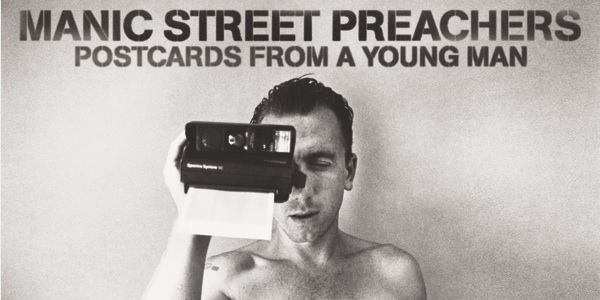Before its release even, the latest Manic Street Preachers album came with a kind of surrender entirely out of character with the band…
Before its release even, the latest Manic Street Preachers album came with a kind of surrender entirely out of character with the band; ‘Last Chance To Get Our Message Out There’ was the cry from within – and what could that possibly mean for a band eleven album’s old, seemingly cursed and weighed down with unpopular opinion? If they truly are considering a break-up, their detractors could comfortably say ‘saw that coming years ago’, but fans, however, can celebrate one of the band’s strongest albums in their 24 year career.
The Manics have survived against some pretty strong odds in reality; missing-presumed-dead members, socialist meanderings, songs built around obscure literary references (surely enough to drive many a rock fan away) but mostly a lack of wider consistent interest. The Manics could easily be saddled with a ‘glory or death’ tag, but their refusal to be defeated even in some pretty glory-free times means either incredible unity within their ranks, or sheer stubbornness has kept their fire burning.
The Welsh trio have remained largely unchanged musically since first injecting their melancholy punk anthems with a little stadium pomp on 1996 classic, Everything Must Go, but subsequent releases often struggled to match that album’s rich offerings. All but the hardcore’s probably shrugged at the band’s post millennium releases, which up until last year’s outstanding Journal For Plague Lovers, were met with little acclaim. But latest album Postcards From A Young Man is a further push to the front of a once disappearing line, and the sound of a band mad at themselves for resting too long on their laurels.
The regulation MSP fare is still present here; the history-book rifling, communist values, Britain in crisis etc… but these touchstones are delivered on Postcards without any of the awkwardness of their sometimes over-wordy early records. Confidence reigns and, although orchestras and choirs feature throughout this album, a lot of the excess fat found on such releases as 2000’s Know Your Enemy, for example, has been shed. The band know their true strengths and unabashedly plunder them for all they’re worth. The title-track for starters is a cobbling together of the old and new Manics’ sound, acting as an awareness-metre of how much they have grown musically over 24 years. It also ties nicely into the album’s concept – the artist’s present selves weighing up the value of progress against their past selves quaint existences.
Being a Manics record, of course they’re cranky about mindless consumption over elementary pursuits – and they’ve never written more clearly on the subject – yet they’re through with being ‘preachy’. Take A Billion Balconies Facing The Sun for example – guest bassist Duff McKagan (ex-Guns’N’Roses) adds his signature to Bradfield’s no-nonsense rail against online bullying. McKagan’s presence, along with Ian McCulloch’s (Echo & The Bunnymen) and John Cale’s is down to a few Manics’ childhood dreams being fulfilled. If you’d ever wondered who they counted among their heroes, there’s the top three. McCulloch duet’s with James Dean Bradfield on Some Kind Of Nothingness – the dark twin of Kylie Minogue’s Some Kind Of Bliss, which the Manics wrote for her –sadly makes for an average-only moment, in spite of tricks like a full choir backing. Cale meanwhile is more impressive on the Radiohead-esque, Auto-Intoxication, adding keys and ‘non-descript noise’ to the track.
However it’s the album’s rock ‘n’ prose single, Its Not War (Just The End Of Love) – a paean to the media-driven divide between East and West – and All We Make Is Entertainment that are the ripest fruits on offer overall. They don’t blow out on the finale either – following run of easy choice singles, the album ends with the beautifully titled Don’t Be Evil, which makes me want to praise and damn them for the same reasons. There they go, being all articulate and irritatingly correct about lost humility through online social networking. Not satisfied with this triumph alone, it also has to be of the best rock songs of the year.
Yes, there is a vague, unsurprising concept running through Postcards From A Young Man, but it never feels laboured or self-important. As much as it is an album concerned with our increasing reliance on the virtual/digital world, it equally celebrates the dying art of tactile communication and by proxy, the band themselves have at last reconnected with their audience.







